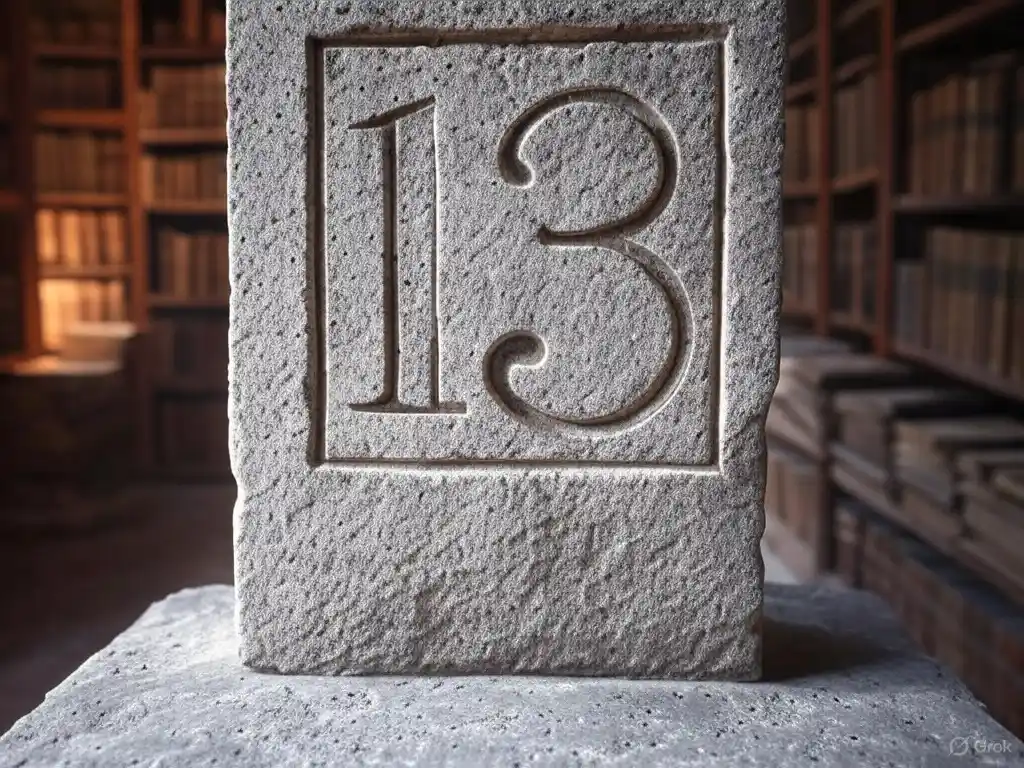Exploring the Number 13 in the Bible: Symbolism of Rebellion and Renewal

The number 13 often stirs fear or superstition, but in biblical numerology, its significance runs far deeper than bad luck. Found in patterns and symbolic meanings across Scripture, the number 13 embodies both rebellion against divine order and the possibility of transformation through divine grace. When viewed in its full context, it offers a layered message about humanity’s struggle with sin and the potential for spiritual awakening.
Biblical Instances of the Number 13
The number 13 is first notably associated with rebellion. In Genesis 14:4, we learn that twelve years of servitude were followed by rebellion in the thirteenth year. This connection between 13 and defiance sets the stage for understanding its symbolism throughout Scripture.
In total, the name “Satan” appears 13 times in the Book of Revelation, a book centered on the final judgment and cosmic rebellion. This reinforces 13 as a number pointing to the disruption of order and resistance against God.
13 and the Betrayal of Christ
Perhaps the most famous example tied to the number 13 is the Last Supper. Jesus dined with 12 disciples, making 13 people at the table — and one of them, Judas Iscariot, would betray Him. This story contributed to the belief that 13 is an ominous number and has influenced centuries of cultural superstition.
However, biblical symbolism often has two sides. While 13 can symbolize sin and betrayal, it can also point to divine providence — God’s response to human rebellion through grace and redemption.
Spiritual Meaning: From Chaos to Renewal
When viewed from a numerological lens, 13 breaks the foundation of 12 — a number representing divine governance (12 tribes, 12 apostles, 12 months). In doing so, 13 challenges the completeness and stability of divine order. But within this disruption lies the seed of renewal.
The spiritual lesson behind the number 13 is that disorder, failure, and rebellion are not the end of the story. Instead, they often mark the beginning of personal transformation and a return to divine truth. In this way, the number invites reflection, repentance, and restoration.
Symbolism in Modern Faith Expression
Embrace the spiritual duality of the number 13 with this finely crafted stainless steel pendant. It reminds us of human imperfection and the hope for spiritual rebirth.
Many who wear the number 13 as a charm or pendant are not inviting chaos but honoring the story of redemption — acknowledging the trials of life and their ability to lead us closer to divine purpose.

Conclusion
The number 13 in the Bible is not merely a symbol of misfortune; it is a deeper call to recognize human weakness, acknowledge rebellion, and walk the path of renewal. It invites us to see beyond surface fears and understand God’s enduring presence even in our darkest hours.
Related Articles You Might Find Helpful
Explore more insights into the spiritual meaning of numbers and how they appear in scripture:
